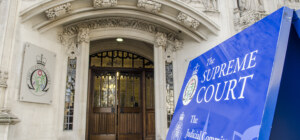Return of the ‘death tax’ – the proposed probate fee hike and charities

Nicola Evans Charities Counsel
The Government announced on 5 November that it intends to press ahead with a proposal to change probate fees from the current fixed fee (£215 for personal applications, £155 for applications by solicitor) to scaled fees based upon the value of the estate up to a maximum fee of £6,000 (on estates worth more than £2 million). If it goes ahead, the proposal will be a direct cost to charities which benefit from estates. The Government has not costed the potential loss, saying simply that the impact on individual beneficiaries ‘is not expected to be substantial’. The Institute of Legacy Management has estimated that it will cost the sector as much as £10 million a year in legacy income.
The Government claims to have ‘listened very carefully’ after withdrawing a similar proposal in 2017 after it was widely criticised, including by Parliamentary Committee, as amounting to a ‘stealth tax’. The fee structure under the revised proposal is not as ambitious as in 2017 (when the maximum fee proposed was £20,000) and it has done more to take smaller estates (up to £50,000) out of the fee entirely, but the essential structure remains the same: the introduction of a ‘fee’ which bears no relation to the cost of the service with the express intention of subsidising a different service, ie what would normally be referred to as a tax (and generally classified by the Office for National Statistics as such).
Why does this matter?
It matters for a number of reasons, some based on basic fairness, others on fundamental constitutional principles. The first point is that there is already a tax on death, namely inheritance tax. Inheritance tax carries with it various exemptions and reliefs which have been developed and scrutinised over many years; gifts to charities are exempt from inheritance tax. However the proposed stealth tax has had no such scrutiny and carries no such exemptions or reliefs – the ‘fee’ on an estate left to charity will be the same and charities will lose out.
There is an important constitutional principle at play here too. Both Parliamentary Committees charged with reviewing the statutory instrument criticised the previous proposal in strong terms in their reports in 2017 (House of Lords Secondary Legislation Scrutiny Committee report and Joint Committee on Statutory Instruments report). The House of Lords Committee noted that to ‘charge a fee so far above the actual cost of the service arguably amounts to a ‘stealth tax’ and, therefore, a misuse of the fee-levying power’. The Joint Committee reported that the proposed fees had the ‘hallmarks of taxes rather than fees’ and questioned the purported use of the power in this ‘unexpected’ way to prescribe ‘large and immediate increases’ in probate fees to fund other court services. It emphasised the “important constitutional principle that there is no taxation without the consent of Parliament, which must be embodied in statute and expressed in clear terms” and doubted that the imposition of the fees was within the Minister’s power.
What happens next?
The draft statutory instrument to impose the ‘death tax’ has been laid before Parliament and has now been scrutinised by the House of Lords Committee. As expected, the Committee has the same concerns about the new proposal and its report published on 21 November applies the same criticisms that the proposal arguably amounts to a stealth tax and misuse of power. It notes too that the Government is seeking to increase the fees at the same time as it is introducing a new procedure which will reduce the cost of probate applications, concluding that it ‘only serves to highlight the Committee’s concerns about the disproportionate increase in the fee levels’.
The draft statutory instrument is due to be scrutinised by the Joint Committee and it would be surprising if that Committee did not also maintain the concerns it expressed in 2017. If the Government still wishes to proceed, the draft statutory instrument would need to be considered and approved by both Houses of Parliament. However, with so many other distractions at present, there remains a significant risk, notwithstanding the serious concerns, that the ‘stealth tax’ will slip through without adequate scrutiny.










